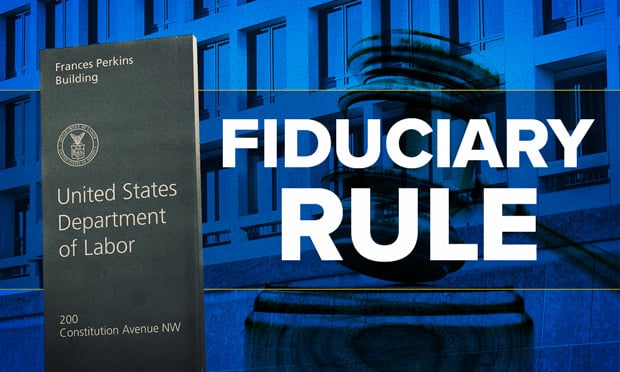It may be hard for the U.S. Supreme Court to turn this one down.
|A recent decision by the U.S. Court of Appeals for the TenthCircuit declaring that the way the Securities and Exchange Commission appointsadministrative law judges violates the Constitution sets up a cleansplit among the circuits and may implicate the validity ofadministrative proceedings in other areas of government.
|In Bandimere v. U.S.Securities and Exchange Commission, 15-9586, a divided courtagreed with Colorado businessman David Bandimere that the ALJ whokicked him out of the securities industry and ordered him to payfinancial penalties was appointed in violation of the AppointmentsClause.
|Judges Mary Beck Briscoe and Scott Matheson were in themajority, saying that, under Freytag v. Commissioner of InternalRevenue, 501 U.S. 868 (1991), the ALJ was indeed an "inferiorofficer," who must be appointed by the President.
|Judge Monroe McKay dissented, saying the "sweeping language" ofthe majority's decision made him "worry that it has effectivelyrendered invalid thousands of administrative actions."
|"Under the majority's reading of Freytag, all federal ALJ's areat risk of being declared inferior officers," McKay said.
|The Bandimere decision is indirect conflict with the D.C. Circuit's August decisionin Lucia v. SEC, 832 F.3d277 (D.C. Cir. 2016) which squarely held the appointment of ALJsdoes not violate the Appointments Clause, as the ALJs aren'tinferior officers because they don't have the authority to issue afinal decision. Only the commission has that power.
|K&L Gates Partner Vincente Martinez, who served as the SEC'schief of the Office of Market Intelligence at the Division ofEnforcement said the clash between "two courts deciding the sameissue in the same context present strong circumstances for SupremeCourt review."
|"The circuit split is directly on point on whether finality ofdecision by ALJs is the determining concern for deciding whetherthey are officers or employees," Martinez said.
|There have been a series of challenges nationally to the use ofadministrative proceedings on due process and equal protectiongrounds—the latter based on a claim of selective enforcement byopting to bring some cases in federal court.
||Until recently, most district courts have rejected thosechallenges, but that changed in 2015 with opinions in districtcourts in Georgia and New York, where judges found they hadjurisdiction to consider the claims—only to be overturned on thatissue.
|On June 1, the U.S. Court of Appeals for the Second Circuit heldin Tilton v. SEC there was a lack ofjurisdiction in the case of Lynn Tilton, nicknamed The Diva ofDistressed Debt. A divided panel said Tilton could always wait forthe end of her SEC proceeding, and review by the commission, totake her constitutional challenge to the circuit.
|The decision cleared the way for an SEC proceeding before an ALJthis fall where Randy Mastro, a partner at Gibson Dunn &Crutcher, defended Tilton. He welcomed the 10th Circuit aboardWednesday.
|"There's something fundamentally wrong and unjust about the SECsteering these incredibly complex cases, where the stakes are sohigh, to internal ALJs rather than giving people facing seriousjeopardy the right to an Article III judge and trial by jury,"Mastro said. "This decision makes crystal clear the inherentproblems and unconstitutionality of the SEC approach and nowthere's a split in the circuits hopefully this will lead to reviewby the Supreme Court."
|The difference between federal court and internal SECproceedings, Mastro and other lawyers argue, is profound. The SEChas an overwhelmingly better record internally, and even withrecent changes by the SEC, there is still limited discovery beforeALJs, time limits on getting to a hearing and the lack of theoption for a jury trial.
|Jacob Frenkel of Dickinson Wright in Washington, D.C., spent 10years at the SEC's Division of Enforcement.
|Frenkel said the private bar is enamored by the appointmentsclause issue, "but that issue misses the more fundamentalproblem."
|"The appointments clause issue is fixable and it's reasonable toexpect that the Supreme Court is not going permit years of ALJdecisions, let alone decisions upheld by the full commission, tofall on a technical issue," Frenkel said. "It would be far moremeaningful for these cases to address the more significant issue ofprejudice and these modest, prophylactic fixes that the commissionembraces as concession do not go far enough to protect the rightsof defendants."
|"The 'generous' gifts of a few more depositions and somediscovery does not come anywhere close to the protections affordedby the rules of civil procedure," he said.
|Frenkel also cautioned that the case might be derailed beforethe Supreme Court has a chance to take it up should the 10thCircuit decide to grant rehearing en banc.
|That prospect is possible, Frenkel said, because of "a very wellreasoned dissent that's in line with the majority of trial courtsand with other circuits—importantly, the Second and theEleventh."
|Bandimere was represented by David Zisser of Jones & Keller;the SEC by Senior Counsel Lisa Helvin.
Complete your profile to continue reading and get FREE access to BenefitsPRO, part of your ALM digital membership.
Your access to unlimited BenefitsPRO content isn’t changing.
Once you are an ALM digital member, you’ll receive:
- Critical BenefitsPRO information including cutting edge post-reform success strategies, access to educational webcasts and videos, resources from industry leaders, and informative Newsletters.
- Exclusive discounts on ALM, BenefitsPRO magazine and BenefitsPRO.com events
- Access to other award-winning ALM websites including ThinkAdvisor.com and Law.com
Already have an account? Sign In
© 2024 ALM Global, LLC, All Rights Reserved. Request academic re-use from www.copyright.com. All other uses, submit a request to [email protected]. For more information visit Asset & Logo Licensing.








